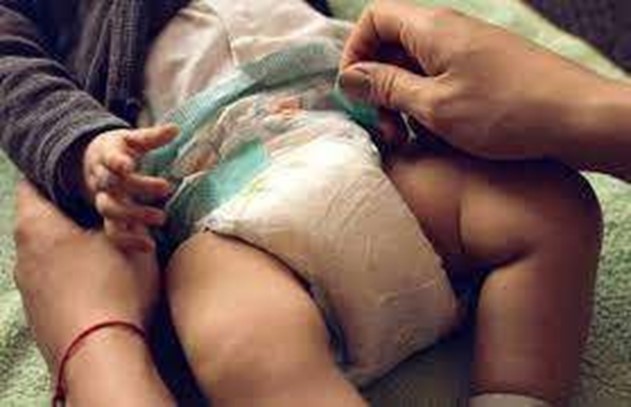A nurse is planning care immediately following birth for a newborn who has a myelomeningocele that is leaking cerebrospinal fluid.
Which of the following actions should the nurse include in the plan of care?
Prepare for surgical closure after 72 hr.
Administer broad-spectrum antibiotics.
Cleanse the site with povidone-iodine.
Monitor the rectal temperature every 4 hr.
The Correct Answer is B
The correct answer is. Administering broad-spectrum antibiotics.
Cleansing the site with povidone-iodine is not recommended because it can be irritating and potentially harmful to the exposed neural tissue.
Monitoring the rectal temperature every 4 hours is not appropriate as it can increase the risk of infection and trauma to the site. Axillary temperature monitoring is preferred.
Preparing for surgical closure after 72 hours is incorrect. Surgical closure is typically performed within the first 24 to 48 hours to prevent infection and further damage to the neural tissue.
Administering broad-spectrum antibiotics is crucial to prevent infection, especially since the cerebrospinal fluid is leaking, which increases the risk of meningitis and other infections.
Nursing Test Bank
Naxlex Comprehensive Predictor Exams
Related Questions
Correct Answer is C
Explanation
Yellow exudate will form at the surgical site in 24 hours.
After a Plastibell circumcision, the penis might develop a yellow-ish discharge which is a normal side effect that should go away in a few days.
Choice A is incorrect because the foreskin may darken around the ring while it remains on the penis until it falls off naturally in 7-10 days.
Choice B is incorrect because the plastic ring remains on the penis until foreskin falls off naturally in 7-10 days.
Choice D is incorrect because there is no information found that suggests making sure the newborn’s diaper is snug after a Plastibell circumcision.
Correct Answer is D
Explanation
Do not retract the foreskin to clean your baby’s penis during each diaper change.
The foreskin should not be retracted for cleaning during infancy.

Choice A is incorrect because you should clean around the umbilical cord stump with plain water and blot dry until it falls off naturally.
Choice B is incorrect because swaddling a baby tightly with their legs extended is not recommended.
Choice C is incorrect because a newborn should urinate at least six times a day.
Whether you are a student looking to ace your exams or a practicing nurse seeking to enhance your expertise , our nursing education contents will empower you with the confidence and competence to make a difference in the lives of patients and become a respected leader in the healthcare field.
Visit Naxlex, invest in your future and unlock endless possibilities with our unparalleled nursing education contents today
Report Wrong Answer on the Current Question
Do you disagree with the answer? If yes, what is your expected answer? Explain.
Kindly be descriptive with the issue you are facing.
